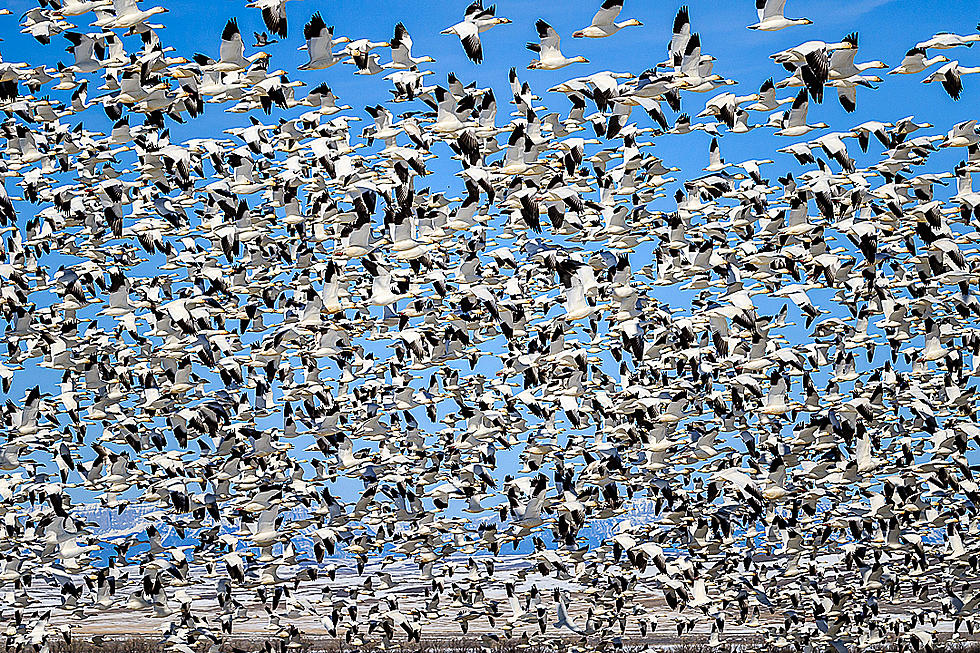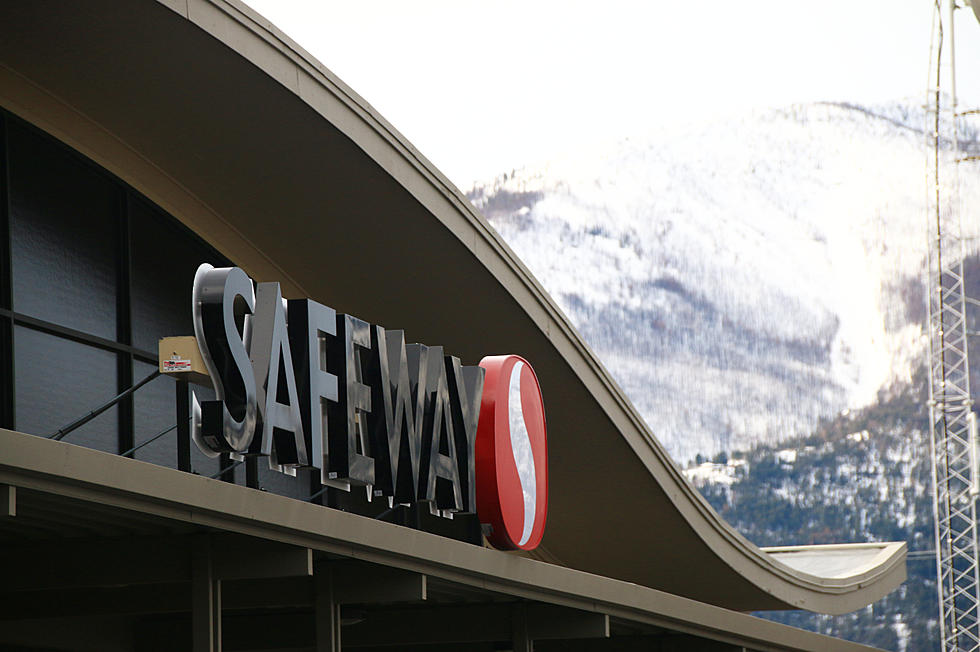
Epic Geese Spectacle Underway at Freezout Lake
There were over 52,000 white geese and over 1,700 tundra swans and trumpeter swans Friday, March 25, at Freezout Lake. The lake, on the Front Range of the Rockies along Highway 89 in Montana, is a birdwatchers' paradise every spring when the white geese stop by to refuel on their northward migration. The photos in this story are from recent years. We thank Mike Daniels for them.
Freezout National Wildlife Management Area has a daily update on the numbers of the large birds. At this point, the snow goose numbers are increasing, but the swan numbers are starting to decrease. The date of the highest number varies from year to year, but this weekend is one of the prime times for the humans to descend on the refuge to see and hear the unbelievable flocks.

The interconnected ponds in the area, along with the open fields, combine for a great "rest area" for the high-flying birds. Each year, first to arrive are the Canada geese, and mallard and northern pintail ducks. Then, the skies fill with white geese and swans, always around the end of March.
As overwhelming as 50,000 birds may be, there have been years when the count was as high at 300,000 white geese and 10,000 swans on the same day. Amazing. And humans have provided the 12,000 acres of the wildlife management area for them to use. During a typical day, the birds will be on the ponds for a while, then will move onto the nearby fields, and back to the ponds again. And it's a little noisy at times.
If you go to Freezout, there are rules. Keep your vehicle on the roads and parking areas. Camp only in designated areas. No campfires! Pets need to be restrained. No littering. Do not park along Highway 89 shoulders. Use the pullouts and parking areas.
Before you go, check the Freezout website. The weather can be fickle and the migration levels change from day to day. As of March 25, the roads are in good condition (mostly ice-free). There's an office at Freezout if you need information while you're there.
The Montana Fish, Wildlife and Parks folks say the Freezout name comes from the 1860s, when the area was called Freezout Flat. A stage station in the 1880s was Camp Freezout, and renowned artist Charles Russell was known to visit.
The large wildlife management area is home to over 230 species of birds, including raptors, shorebirds and more. Be courteous when you're there. Everyone has their own way to enjoy spectacles like this. Give them space and share the experience.
Animals in Montana - Looking at You
Whimsical Homemade Mailboxes Only Found in Montana
More From 94.9 KYSS FM









